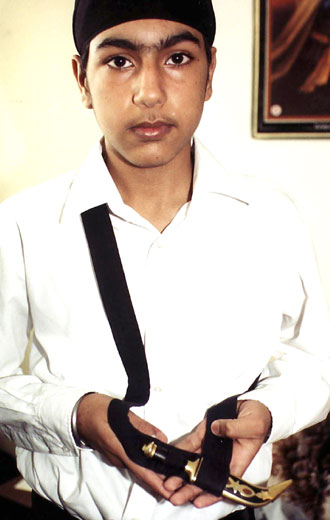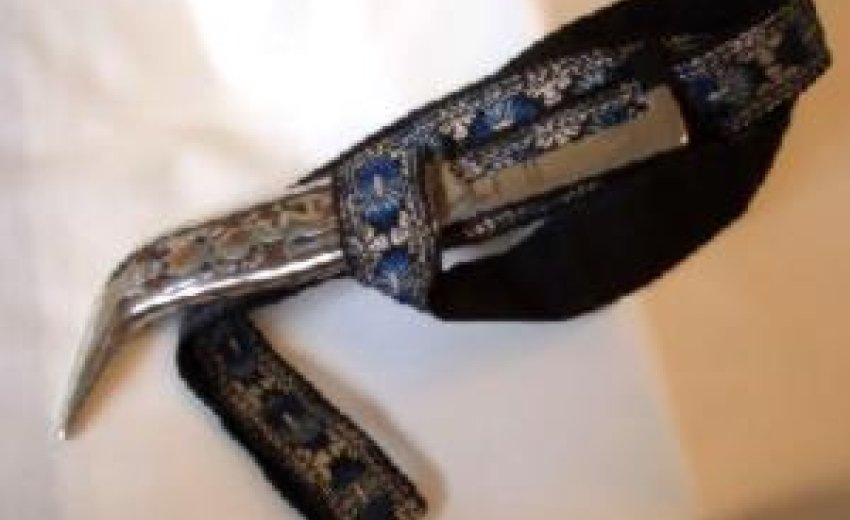 MONTREAL -- Persistent anti-kirpan sentiment in Quebec combined with parental prejudice are at the root of criminal charges brought against a Sikh boy, his lawyer argued in a Montreal court yesterday.
MONTREAL -- Persistent anti-kirpan sentiment in Quebec combined with parental prejudice are at the root of criminal charges brought against a Sikh boy, his lawyer argued in a Montreal court yesterday.
The trial of the 13-year old boy, who is charged with brandishing a short, permanently sheathed, ceremonial dagger during a school scuffle in September, ended with the boy's soft-spoken testimony and heated arguments between lawyers.
Two schoolmates accused the Sikh boy of poking them with the dagger and a hair pin during a brief disagreement that quickly rose from the street to the principal's office to the courts.
The incident took place near the Cavalier-de-LaSalle high school in the Marguerite Bourgeoys school division - the same school board that fought in court against the right of a Sikh student to wear the kirpan. In 2006, the Supreme Court of Canada upheld the right of Sikhs to wear the kirpan to school.
The case was among the examples of "reasonable accommodation" that has inflamed debate in Quebec in recent years.
"A lot of people in this province had a hard time swallowing the [Supreme Court] ruling," argued defence lawyer Julius Grey, a human-rights lawyer who has called the kirpan an "unhealthy obsession" in Quebec.
The teenager accused of three counts of assault described how the brothers followed him and two friends over several days from the start of the school year. On Sept. 11, the brothers, who wanted to befriend one of the Sikh boy's companions, were told to get lost. One of the Sikh boy's other friends admitted to pushing one of the brothers to the ground during the altercation.
The frail Sikh boy, who fainted during his testimony yesterday, and his friends say that was the extent of the violence and that the kirpan was never taken out from beneath his clothing. The brothers claim the accused unstrapped his dagger from beneath his clothing, unwrapped it from a cloth cover and poked one boy with it and then used a hair pin to poke the other.
"These two boys, jealous of [the accused], decided to teach him a lesson. They had a certain prejudice they picked up at home, and they invented a story," Mr. Grey said.
Prosecutor Sylvie Lemieux said the case is not about religion, prejudice or the right to carry a kirpan. She argued it would have been impossible for the brothers to invent such a detailed story involving the religiously symbolic kirpan.
